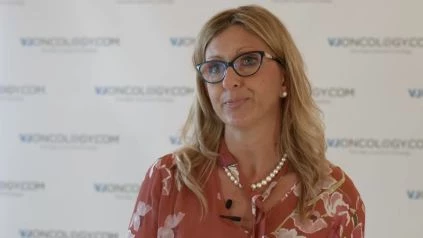Maria Concetta Fargnoli, MD, form the University of LAquila, LAquila, Italy discusses the developments made in melanoma genetics owing to next-generation sequencing (NGS) at the 2016 World Congress on Cancers of the Skin (WCCS) and the Congress of the European Association of Dermato-Oncology (EADO) in Vienna, Austria. According to Dr Fargnoli, due to extensive research into NGS, some families can now be completely sequenced by exome sequencing which has led to the identification of private and rare mutations which were previously unknown. Many melanoma mutations are involved in cell cycle regulation and pigmentation which are known factors that influence the melanoma pathogenesis but recent research is now focusing on telomere maintenance which is a completely novel pathway in melanoma genetics. Dr Fargnoli believes that with NGS technology, new genes and rare mutations can be discovered, which would never have been identified by standard techniques.
[the_ad id="32629"]

